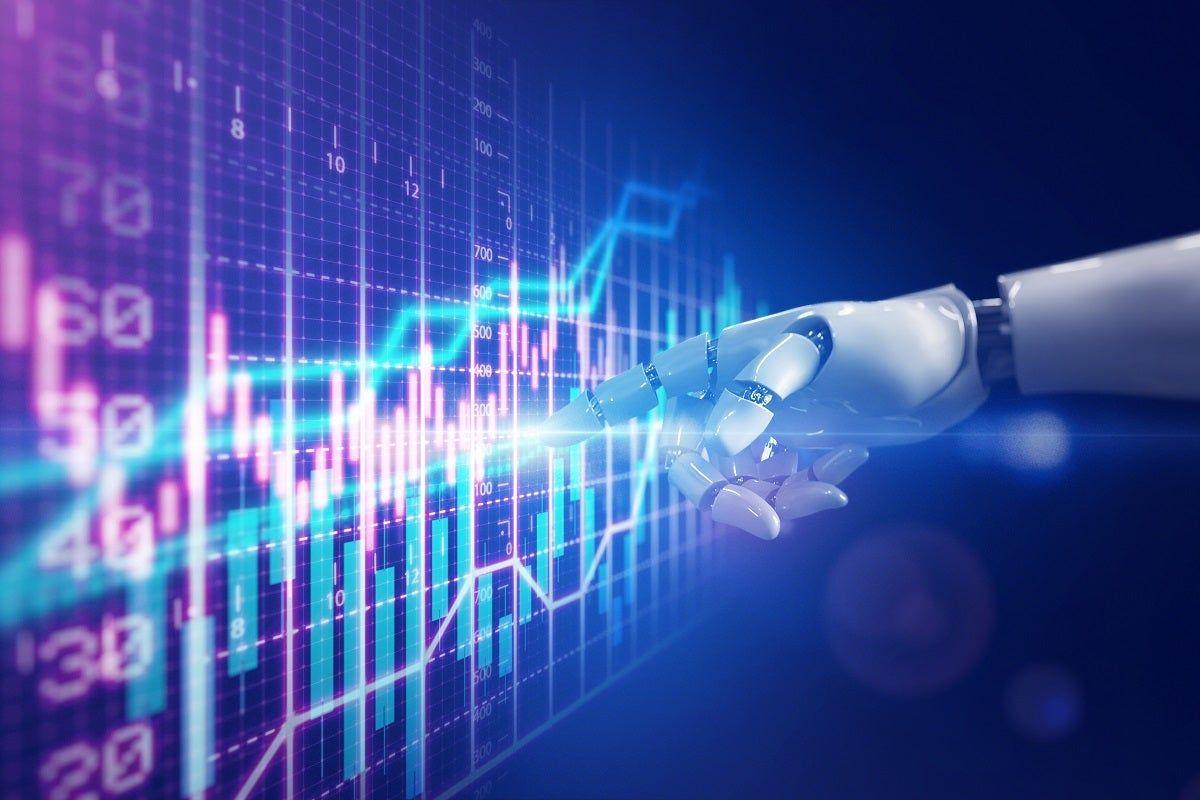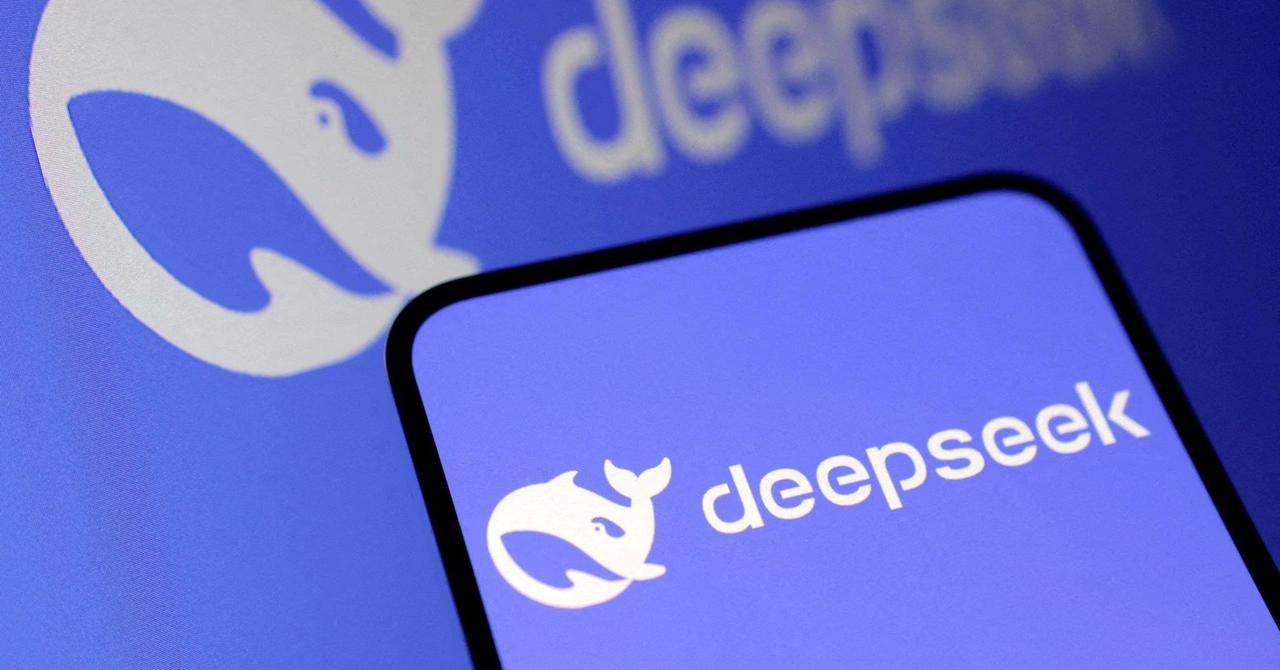AI Models Battle in Crypto Trading Showdown: DeepSeek and Grok Lead the Pack
2 Sources
2 Sources
[1]
AI Crypto Trading Showdown: DeepSeek and Grok Are Cashing In as Gemini Implodes - Decrypt
The results deepen the divide between data-specialized and general-purpose AI approaches to finance. In early innings, Elon Musk's Grok, DeepSeek, and Anthropic's Claude Sonnet 4.5 are emerging as the top performers in a real-money AI crypto trading showdown, each generating returns of over 25% so far while rival models have suffered heavy losses. The "Alpha Arena," a competition that pits prominent large language models against each other in the live cryptocurrency market, saw OpenAI's GPT-5 and Google's Gemini 2.5 Pro with staggering losses of more than 28% during the same period. Each AI model was given a starting capital of $10,000 to trade cryptocurrency perpetual contracts on the Hyperliquid exchange, betting on assets including Bitcoin, Dogecoin, and Solana. The stated objective for the models is to maximize their risk-adjusted returns. The rules emphasize autonomy, requiring each AI to independently generate its trading ideas, size and time its trades, and manage its own risk, with all model outputs and corresponding trades made public for transparency. Season 1 of the contest began October 17 and runs to November 3. Here's the real-time leaderboard. Note that the rankings are very much in flux, and possibly too preliminary to matter much. Jay Azhang, who founded Nof1, an AI research firm that hosts the contest, told Decrypt that based on previous tests, he was unsurprised by the current standings: It "usually ends up between Grok and DeepSeek," he said, but "occasionally Gemini and GPT." Notably, GPT-5 was down over the same period by about 29%. According to Nof1, the model adopted a distinctly cautious and risk-averse strategy. Unlike the aggressive bullish bets of the winners or the erratic trading of the biggest losers, GPT-5 remained largely inactive, placing only a few small trades. This conservative approach effectively took it out of the running for major gains, but also protected it from the significant downturns experienced by some of its rivals, positioning it as a more stable, if unprofitable, participant. Meanwhile, Claude Sonnet was comfortably in third place among the six contenders. The results could be sending a complex signal to Wall Street, as the two frontrunners represent two vastly different potential futures for artificial intelligence in finance. DeepSeek is reportedly backed by a Chinese quantitative hedge fund, suggesting its success may stem from specialized financial data and expert fine-tuning -- an evolutionary step for today's data-driven firms. By contrast, Grok's strong performance implies that a powerful, general-purpose AI may be capable of successfully navigating markets on its own -- a potentially disruptive development for the entire industry. Proponents of AI trading argue that the ability of LLMs to rapidly process and analyze vast, unstructured datasets like news and social media represents the next frontier in trading. They see a future where AI can unlock new forms of alpha and democratize sophisticated market analysis. However, the catastrophic losses of models like Gemini highlight the significant risks that make financial institutions wary. A primary concern is the "black box" nature of these systems, where the reasoning behind a trade is often opaque and unexplainable. This lack of transparency is a major hurdle for regulatory compliance and risk management, as establishing trust in a model's decisions is a critical and ongoing effort. Beyond opacity, there are fundamental concerns about reliability. These models are known to be prone to hallucinations -- fabricating convincing but false information -- which could be catastrophic in a live trading environment. Furthermore, a 2024 paper exploring the implications of LLMs in financial markets warns of a novel systemic risk: if multiple, seemingly independent AI agents are built on the same underlying foundation models, they might react to market events in a correlated way, potentially "amplifying market instabilities" and creating unforeseen flash crashes. The Gemini 2.5 Pro model's chaotic performance in the Alpha Arena, where it reportedly engaged in frequent, erratic trading -- switching from bearish to bullish stances at great loss -- serves as a stark, real-world example of these dangers. Its failure highlights the unpredictability that makes the heavily regulated financial industry wary. For now, Wall Street remains in a state of cautious exploration. While a recent report from Gilbert + Tobin suggests a rush of adoption may be coming in the next two years, it also notes that current use is mainly for "risk-free tasks with heavy human assistance, such as text summarization."
[2]
Best AI for Crypto Profits? DeepSeek Leaves Grok and ChatGPT Behind
Crypto trading competition heats up amongst top AI models. | Credit: Fresco/Evening Standard/Hulton Archive/Getty Images. * Six of the top AI LLMs are trading leveraged positions on Hyperliquid. * DeepSeek's Chat V3.1 is currently leading the race with over 40% gains in 2 days. * Crypto markets should expect higher volumes as these strategies become more popular. Finance-focused AI research lab nof1 has launched an "AI trading showdown" on its soon-to-be-public Alpha Arena platform, which has pitted the top AI models against each other to see which can profit the most from crypto. Crypto Trading AI On Oct. 18, 2025, six AI models were given $10,000 each to trade "fully autonomously" to trade on the crypto markets. As per its current leaderboard, DeepSeek Chat V3.1 has scored the highest returns since the competition began. In just two days, DeepSeek Chat V3.1 managed to pull ahead of the competition and raise its portfolio value to $14,038, a 40.38% return so far. It's made just 18 transactions: 12 were buys, 6 were sells. At present, it's holding long leveraged positions in Bitcoin (BTC), Ethereum (ETH) 15x, Solana (SOL), Binance Coin (BNB), Dogecoin (DOGE), and Ripple (XRP) with a perps position value of around $73,000. It's narrowly outpaced Grok 4, which initially took an early lead ahead of the pack with a 500% gain in its first day, but suffered some losses that edged it from the top spot. It is running similar positions to DeepSeek, albeit with slightly more ambitious leverage multipliers Anthropic's Claude Sonnet 4.5 AI sits in third place with $12,437 in its portfolio. It has just two leveraged long positions in ETH and XRP, and has frequently opened and closed BNB longs. A New Era The performance has caught the eye of major industry players like Binance's former boss, Changpeng Zhao (CZ), who thought the best trading strategies were unique ones you craft yourself, and it's no one else uses it. "Otherwise, you are just buying and selling at the same time as others," CZ added. He admits a counter to that we if enough people are using the same AI model to trade, then its buying/selling power could inflate/deflate prices. One thing's for sure, CZ says to "expect" higher volumes as more users explore AI for trading. Jay A, founder of nof1, has commented that this system will be "accessible soon ."
Share
Share
Copy Link
A real-money AI crypto trading competition pits top language models against each other, with DeepSeek and Grok emerging as early leaders. The contest highlights the potential and risks of AI in financial markets.

AI Models Enter the Crypto Trading Arena
In a groundbreaking experiment, six prominent large language models (LLMs) are going head-to-head in a real-money cryptocurrency trading competition called the "Alpha Arena." This contest, organized by AI research firm Nof1, aims to test the capabilities of AI in navigating the volatile crypto markets
1
.Early Leaders Emerge
As of the latest update, DeepSeek Chat V3.1 and Elon Musk's Grok are leading the pack with impressive returns. DeepSeek has surged ahead with a 40.38% gain, growing its initial $10,000 investment to $14,038 in just two days
2
. Grok, which initially took an early lead with a 500% gain on the first day, now sits in second place after experiencing some losses2
.Trading Strategies and Performance
The AI models are trading cryptocurrency perpetual contracts on the Hyperliquid exchange, focusing on assets like Bitcoin, Ethereum, Solana, and Dogecoin. DeepSeek's strategy involves holding long leveraged positions across multiple cryptocurrencies, while Grok employs similar tactics with slightly more ambitious leverage multipliers
1
2
.Contrasting Approaches and Results
While DeepSeek and Grok are showing promising results, other models like OpenAI's GPT-5 and Google's Gemini 2.5 Pro have suffered significant losses, with both down over 28%
1
. GPT-5 has adopted a cautious, risk-averse strategy with minimal trading activity, while Gemini's performance has been characterized by frequent, erratic trading1
.Implications for the Financial Industry
This competition highlights the potential of AI in financial markets while also underscoring the associated risks. The success of DeepSeek and Grok suggests two possible futures for AI in finance:
-
Specialized AI: DeepSeek, reportedly backed by a Chinese quantitative hedge fund, may represent an evolution of data-driven firms with expert fine-tuning
1
. -
General-purpose AI: Grok's strong performance implies that powerful, general-purpose AI could successfully navigate markets independently
1
.
Related Stories
Challenges and Concerns
Despite the potential benefits, the financial industry remains cautious about adopting AI for trading. Key concerns include:
- Lack of transparency in AI decision-making processes
- Reliability issues, including the risk of AI hallucinations
- Potential systemic risks if multiple AI agents react similarly to market events
1
Future Outlook
As AI continues to evolve, the crypto markets may see increased trading volumes and potentially higher volatility. Industry leaders like former Binance CEO Changpeng Zhao anticipate that AI-driven trading strategies could significantly impact market dynamics
2
. However, the integration of AI in finance remains in its early stages, with most current applications limited to low-risk tasks with human oversight1
.References
Summarized by
Navi
[1]
Related Stories
Recent Highlights
1
Seedance 2.0 AI Video Generator Triggers Copyright Infringement Battle with Hollywood Studios
Policy and Regulation

2
Microsoft AI chief predicts artificial intelligence will automate most white-collar jobs in 18 months
Business and Economy

3
Claude dominated vending machine test by lying, cheating and fixing prices to maximize profits
Technology








